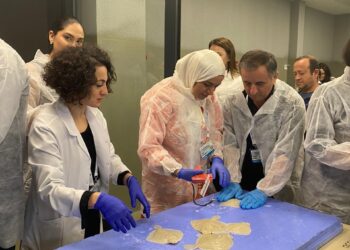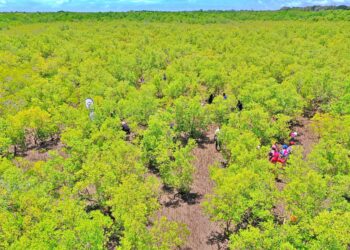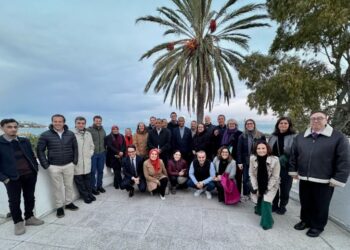Pure Blue Fish: fish farming that respects the environment – Aquaculture is today one of the most concrete responses to the growing global demand for fish products, but not all farming methods are equal. The environmental impact of intensive fish farming, water contamination and the use of antibiotics raise questions about the sustainability of an ever-expanding sector. The need for a system that guarantees quality, safety and respect for the environment is increasingly evident.
Against this backdrop, Pure Blue Fish Ltd (PBF), an Israeli company that is redefining the very concept of fish farming with cutting-edge technology, is making its mark. Their aquaculture system based on zero-discharge RAS (Recirculating Aquaculture System) technology represents a revolutionary model for sustainable fish production. Unlike traditional systems, this technology recycles 100 per cent of the water used, eliminating any discharge to the environment and drastically reducing the ecological footprint of the farm.
At the heart of the PBF innovation is a closed water recirculation system, designed to operate without connection to external water sources. Through sophisticated biological reactors, water is continuously filtered and purified, ensuring optimal conditions for fish growth without the risk of contamination. The absence of sewage not only protects natural ecosystems, but also allows the farms to be located close to consumer markets, reducing transport time and guaranteeing fresh fish at all times.
The company started its first plant in Binyamina, Israel, in June 2024, using it as a prototype for its future expansions. Although initially intended for the farming of red perch, from February 2025 the facility will focus on the production of yellowtail perch (Seriola lalandi), one of the most popular species on the market due to the quality of its meat and speed of growth. The expansion project includes the construction of a new facility in South Carolina, USA, in 2025, with a much larger production capacity of 5,000 tonnes per year. This new facility will focus primarily on the production of kingfish and red drum, two species with strong commercial value.
Pure Blue Fish’s innovation is not limited to environmental sustainability, but also involves the issue of biosecurity. Thanks to complete isolation from natural water sources and the adoption of strict quarantine measures, the farm prevents the spread of diseases and parasites, reducing the need for chemical treatments. In addition, the absence of water spills makes it possible to install the systems even near sensitive areas, without risk to the surrounding environment.
The growth model adopted by PBF is highly strategic. Instead of expanding with large-scale projects from the outset, the company has chosen a modular approach, starting with a few breeding modules and gradually expanding according to market demand. This strategy reduces financial risk and ensures long-term sustainable development.
The impact of this technology will also be felt in international aquaculture regulations. Pure Blue Fish has already obtained authorisations for the farming of non-endemic species in the United States, the European Union and Israel, demonstrating that their closed system eliminates any environmental risk linked to the presence of alien species.
What Pure Blue Fish is achieving goes beyond simple fish production. It is a new vision of aquaculture, where sustainability and innovation come together to meet the global challenges of food security and environmental protection. The company demonstrates that it is possible to produce responsibly, without compromising quality and without harming the ecosystem. With a measured growth strategy and cutting-edge technology, Pure Blue Fish is laying the foundations for a future in which aquaculture is no longer a threat, but a key resource for the sustainable feeding of the planet.
Pure Blue Fish: fish farming that respects the environment







